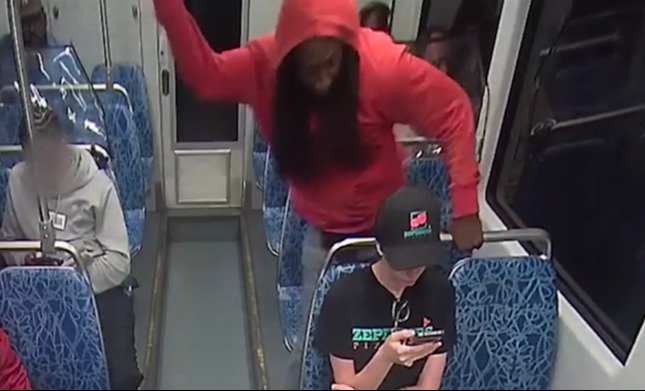Newly released surveillance footage reveals chilling scenes from the moments before and after the fatal stabbing of Iryna Zarutska, a 23-year-old Ukrainian refugee, aboard Charlotte’s Lynx Blue Line. The footage, issued by WBTV on September 5, shows Decarlos Brown Jr. and Zarutska on the train, but the station wisely withheld the graphic act of violence out of respect for viewers.
According to the Charlotte-Mecklenburg Police Department, the unprovoked attack occurred around 9:50 p.m. on August 22. Zarutska was stabbed multiple times—at least once in the throat—and pronounced dead shortly thereafter. She had fled Ukraine in 2022 with her family to escape the war and embraced a new life in the U.S.
Decarlos Brown Jr.’s Troubling Record
Authorities identified the suspect as 34-year-old Decarlos Brown Jr., who has a long history of violent and troubling behavior dating back to at least 2011. His criminal record includes convictions and arrests for armed robbery, felony larceny, breaking and entering, threatening behavior, and assault—including an attack on his sister just months after his prison release.
Brown served approximately five years in prison for armed robbery and was released in September 2020. Soon after, in February 2021, he assaulted his sister, causing injuries, and was also arrested for trespassing and property damage. In July 2022, he faced arrest for a domestic disturbance involving disorderly conduct.

His legal troubles continued into 2025, including an arrest in January for misusing 911—during which he claimed that “man-made material” was controlling his body. Though a forensic mental-capacity evaluation was ordered in July, it never occurred; instead, he was released without bond by Magistrate Judge Teresa Stokes.
Legal and Systemic Concerns
The tragedy has sparked widespread outrage and intensified scrutiny of Charlotte’s criminal justice and mental health systems. Brown’s lengthy record, coupled with signs of mental illness, raised serious red flags.
Officials, including Mecklenburg County District Attorney Spencer Merriweather, have acknowledged systemic gaps—particularly in handling repeat offenders with mental health issues and ensuring effective release protocols. The 2023 Pretrial Integrity Act, which shifts authority over bond decisions for violent offenders from magistrates to judges, represents a step forward—but resource constraints remain a challenge.
Next Steps in the Case
Brown has been charged with first-degree murder and is being held without bond. A judge has ordered a competency evaluation before the trial proceeds.
This case brings into sharp focus the need to reevaluate how justice systems manage repeat offenders, especially those with mental illness, and points out the necessity for reforms to prevent future tragedies.


